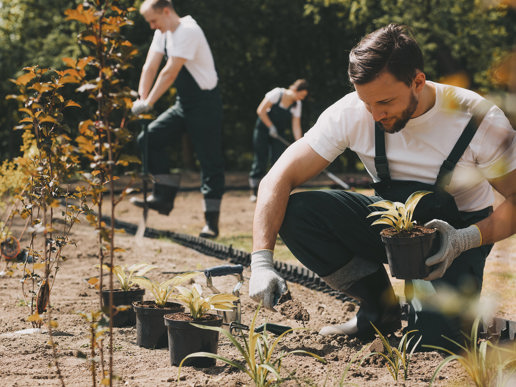How clean energy and jobs can flow from Morocco to the UK

One thing that all business leaders have learnt through the Covid-19 pandemic is that you never really know what’s coming next. The energy crisis that has suddenly hit the headlines is an example of this. While a few energy analysts and specialists may have seen it coming, to the average business owner it seems to have spun itself up out of nowhere.
It’s a concern for anyone who runs a business because energy supply is so crucial and also a significant cost. We all need energy that we can rely on and accurately budget for.
Energy also needs to be green. With Cop26 just around the corner, it’s vital that the UK moves faster in its use of zero-carbon electricity as a key plank in reaching net zero by 2035.
Climate change is the biggest existential crisis of our time and I feel an enormous moral obligation as a business leader to try to help solve it. That’s why at Ground Control we’ve always put sustainability at the heart of what we do — operating as a carbon-neutral business, setting up our Evergreen Fund that invests in clean, green energy projects and initiatives, and recently creating our Wildfell Centre in Essex that will showcase best practice in biodiversity, habitat creation and carbon sequestration.
However, I know we can and should be doing a lot more. That is why I set up Xlinks in 2019 to build something that I firmly believe the world needs to help transition itself off fossil fuels faster and do so in a way that is economic and saves money for consumers. We are hard at work on our first major project, building a solar and wind facility in Morocco covering an area of 1,500km² that will connect to Britain via sub-sea cables and deliver enough clean power for seven million British homes by the end of the decade. Once complete, the project will be capable of supplying 8 per cent of Britain’s electricity needs.
Xlinks will be a net contributor to the Exchequer, if the project utilises the government’s contracts for difference (CfD) mechanism, which incentivises investment in renewable energy by providing projects like ours that have high upfront costs and long lifetimes with direct protection from volatile wholesale prices. It will not require government subsidy or finance, and will deliver energy at a CfD price of £48/MWh, pricing it well below the government’s central forecast for energy prices. This compares favorably with a similar nuclear baseload supply being developed at Hinkley for a CfD of £92.50/MWh and we should be energised well before them. This means it will generate savings for consumers along with accelerating our transition as a country to net zero.
Alongside the consistent output from its solar panels and wind turbines, a 20GWh/5GW battery facility will ensure power generated can be delivered every day, resulting in a dedicated, near-constant source of flexible and predictable renewable energy, designed to complement renewable energy generated in the UK.
There will be significant employment benefits from the venture too. Thousands of jobs will be created in Morocco and also at home. It will also help to advance Morocco’s renewable energy ambitions. There is also a real issue in the energy industry that there aren’t enough manufacturers of the high voltage direct current (HVDC) sub-sea cables that are needed to transport energy — so we’re creating our own manufacturing capability. Sites in the UK — at Hunterston near Glasgow, Port Talbot in south Wales and a possible third one under discussion in the northeast — will support 1,350 permanent jobs by 2024.
This investment in creating a new HVDC cable industry in Britain will also fuel a supply chain ecosystem including steel manufacturing, local fabrication, factory construction and fit outs, shipbuilding for a cable laying vessel and support services for factories. It will provide a shot in the arm to local economies and help with the government’s levelling-up agenda.
Our team includes Sir Dave Lewis, the ex-chief executive of Tesco, as our executive chairman and Paddy Padmanathan, president and chief executive of ACWA Power, a leading developer of renewable power across north Africa, the Middle East, southern Africa and southeast Asia, as our vice-chairman.
If constructed today, it will be the largest renewable energy generating project globally and the longest submarine energy cable ever built.
I love the idea of clean electricity flowing, all the way from Morocco to the UK. I hope it may inspire other ambitious renewable energy projects too — which, together, will provide clean, secure and stable energy, at affordable prices, for businesses and households to rely on and help to protect this special planet.

The generation game: how to benefit from the talents of all ages

Solving problems for customers builds enduring relationships





